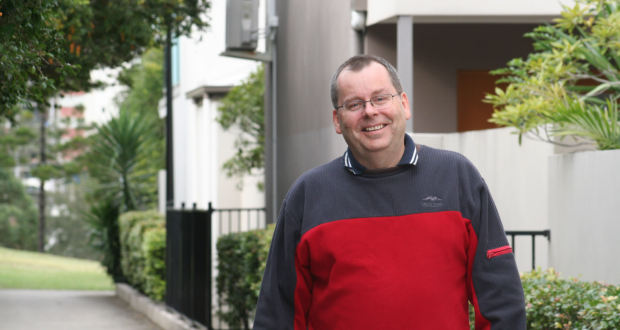“Can there be a shadow side—a risk—in developing a sharper focus on discipleship as core business for the church?” asks Presbytery Minister for the South Moreton Presbytery Rev David Busch.
Absolutely. Two immediately come to mind.
One is an exaggerated sense of effort. How easily does discipleship become all about us, what we should do, how we should live, what we need to change! We take upon ourselves the task of transformation of self and society, and feel burdened with expectations, guilt and inadequacy.
Yes, Jesus does counsel us to weigh up the cost, and Dietrich Bonhoeffer did famously write about the “cost of discipleship”. But that cost is not our striving effort, but our relinquishment. It is the cost of surrendering to the yoke of obedience to Christ, in whom we find true freedom and wholeness.
Discipleship is not so much a journey of demand and denial (although it is that!) as it is of changed desires: learning to desire rightly. It is not a journey of our own self-improvement, but of God taking hold of us ever more deeply, that we might live in the fullness of life—not ours, but Christ’s.
The second risk is an exaggerated sense of individualism—that we target our proclamation of the gospel solely towards personal encounters, personal decisions, personal outworking of faith. We can easily forget that, as it takes a village to raise a child, it takes more than a private spirituality to grow a disciple.
This is not to deny that God seeks each of us personally. But the communal dimension of discipleship—being drawn into the messiness of Christian communities, where the chasm between abstract ideals and our broken lives is spanned only by grace and love, given and received—reminds us of two fundamental truths of discipleship.
One—that everyone and everything is being reconciled to God through Christ. We are called not just to Christ but also to each other, and all together as members of the one body of Christ. The commitment that we belong to each other, despite everything that otherwise would keep us apart, is our witness to God’s reconciling purposes.
Two—that Christ is revealed in those around us. The God of the incarnation may meet us in our detachment and introversion, but will also be revealed in the stories of others who, in their own way, sing the Lord’s song, dance to the spirit’s beat and bear the light of Christ.
Perhaps we might reframe discipleship—not being a journey we take (our discipleship to grow in God) but being a work God does in and for us (God’s discipling of us). Grammatically, making God the subject and us the object enables us to see that the action is God’s, not ours.
Then we might hold these risks in tension as we let God do the discipling, opening us to dream God’s dreams and to live in the future-now reign of God.
 JourneyOnline
JourneyOnline







